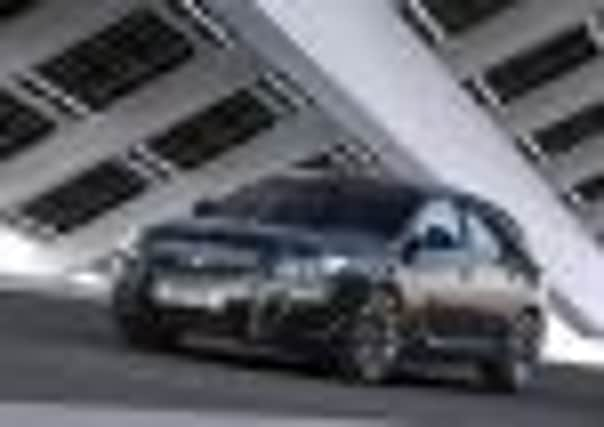Alan Candy’s road test: Vauxhall Insignia VXR Sports Tourer is fastest way to move your luggage


They look like extended versions of their main stablemates and do a job as well.
But there are exceptions, and this is one of them - the Vauxhall Insignia VXR Sports Tourer. The secret lies in those magical three letters, VXR, which denote to those in the know that this is no ordinary car. VXR models are the cream, the zenith of Vauxhall engineering and as close to actual motor sport as it is possible to get with a road going production car.
Advertisement
Advertisement
So here you are looking at the fastest estate car that Vauxhall has ever produced, and the first to incorporate adaptive 4x4 and an electronic slip differential.
The Sports Tourer’s pedigree and sheer blinding pace are undisputed. Any car with a sub seven second 0-60mph speed has to be taken seriously.
The estate’s 2.8i 24v V6 Turbo engine shoots the car like an arrow from a bow to that speed in a lightning quick 6.2 seconds (the manual version makes it in 5.6) and on to a limited top speed of 155mph, with enough thrills on the way to satisfy the most demanding driver.
And the VXR estate isn’t backward about coming forward. I, and the world, know it’s a VXR because the letters are emblazoned on the info screen, the floor mats, steering wheel, gearlever and sills.
Advertisement
Advertisement
And the VXR model is easy to spot on the move. A deeper bumper is dominated by dramatic twin mesh ‘nostril’ grilles while at the back is a rear spoiler and twin matt chrome exhausts.
The Insignia’s trademark curvy ‘L shape on the doors and big griffin sitting proudly in the centre of the generous front grille also sets it apart, while dramatic 19-inch alloys and ultra low profile tyres signal the car’s sporting intentions.
From the driver’s point of view, the VXR estate performance is stimulating and an irresistible invitation to go enjoy.
Mere figures on paper still don’t prepare you for the thrill of the throbbing beast of an engine lurking beneath the bonnet which provides a constantly variable soundtrack to accompany every ride.
Advertisement
Advertisement
On the auto version the tuneful engine burbles away happily while constantly shifting subtle gear patterns indicate the engineering that has gone into ensuring every inch of the journey is technically mapped out for you.
Frenetic response to hard acceleration means that the VXR estate driver will always be first away from the lights and that overtaking manoeuvres can always be undertaken in complete confidence and safety. Long bursts of speed sees the elegant and shapely estate gobble up the miles while the adaptive 4x4 with electronic limited slip differential and reduced ride height allows the Sports Tourer to sit down low and cling on tenaciously through the bends. Fast-action steering is very involving, with the flat-bottomed steering wheel a reminder of the car’s sporting pedigree.
Luckily the driver is cosseted in curvy sports Recaro seats that hug you tight through the bends.
For those who still need the day-to-day practicality of an estate, it’s worth noting that this Insignia matches the best in class for luggage volume with seats folded down and that space is surprisingly generous for what is essentially a mid-sized estate.
Advertisement
Advertisement
The sporty estate’s stylish interior is dominated by a curvy, wraparound dashboard that seems to grow organically into the doors. But displays aren’t that intuitive, with an initially daunting identical 26 buttons surrounding the CD tuner and main info display screen.
The sports tourer’s party trick is the single button release that opens and closes the tailgate automatically. That’ll keep the neighbours talking. But then almost everyone can’t take their eyes off the race-bred estate with a matchless combination of space and pace.
Fast facts
> Vauxhall Insignia Sports Tourer VXR auto, £36,730.
> Powered by 2,792cc 24v V6 turbo petrol engine producing 325PS @ 5,250rpm.
> Max torque 435Nm @ 5,250rpm.
> 0-60mph in 6.2 seconds, top speed limited to 155mph.
> Combined 25.7mpg.
> CO2 emissions: 259 g/km.